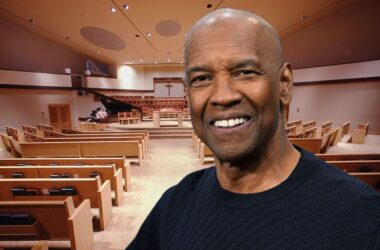Peter Sellars wanted to know more.
He was in San Francisco a few years ago, attending a performance of “The No One’s Rose,” a fascinatingly idiosyncratic work of music theater that featured some of his favorite artists, from the American Modern Opera Company, and a score by the young composer Matthew Aucoin.
One section of the piece stood out: “Deep Water Trawling,” a setting of a poem by Jorie Graham that felt both human and not, both natural and spiritual. Most important, it seemed to have brought out something new, and special, in Aucoin’s writing.
After the show Sellars, who at 66 has long been a reigning opera director, asked Aucoin, “What was that?”
They decided to take the inspiration of Graham’s poetry further, starting without any specific commission. Now, having taken shape as the evening-length “Music for New Bodies,” their project is premiering in concert on Saturday in Houston, presented by Dacamera and performed at Rice University.
In five movements sprawling across 70 minutes, “New Bodies” sets poems by Graham about the earth and humanity that are told in shifting voices and registers, channeling natural forces and at times evoking the mind under anesthesia. Although its expansiveness and form recall Mahler’s “Das Lied von der Erde,” it is neither a song cycle nor a symphony. It is perhaps closest to opera, though mostly, it is what it is.
“I don’t know where any of it came from,” Aucoin, 34, said this week. “I feel that I’ve had this long and intense apprenticeship writing orchestra pieces and operas, and now I’m spreading my wings, and this is a different thing. There is no ground under my feet here. That is terrifying and thrilling.”
Aucoin studied with Graham, 73, a celebrated and much-decorated pillar of American poetry, as an undergraduate at Harvard University. In an interview, she recalled him as “a genius.” (All three creators of “New Bodies” happen to be MacArthur “genius” fellows.) She watched the genesis of his first major opera, “Crossing,” about Walt Whitman during the Civil War, and once asked him how music comes to a composer. As a poet, she offered, she hears words; he told her that sound feels like heat that turns into notes. The metaphor stuck with her.
She gave her blessing to “Music for New Bodies,” but has mostly left its creation to Aucoin and Sellars. “Honestly, if you have Peter Sellars and you have Matt, the best idea is to keep out of it,” Graham said. They drew from her collections “Fast,” “Runaway” and “To 2040,” all published since 2017 and dealing with her cancer treatment, the planet and immortality.
Like countless composers before him, Aucoin is no stranger to setting poetry. “There’s a way in which the words as they appear to the mind, and the notes as they appear to the mind, have to go through two different channels for him, and they speak to each other,” Graham said. “He knows how to plumb into the depths of the music on the page.”
But her poetry has unlocked something unfamiliar to Aucoin, he said. She thinks that part of the reason is that, here, he’s trying to find a language to understand what it means to be human. Sellars said it might also be about admiration and love for the text.
“This is not just standard operating procedure,” Sellars said. “The piece has this depth and this inner tranquillity, and warmth and intensity. Jorie’s poetry invites lots of points of entry, and in Matt’s music, meanings proliferate. He has created this enveloping zone of texture, of memory, but also of hope.”
To Aucoin, Sellars has been a “spirit guide.” They have had frequent conversations about “New Bodies,” independent of any staging, and the director has nudged the composer toward crucial decisions about form; at one point, Sellars told Aucoin that in the fourth movement, “Prying / Dis-,” a solo line, should be given to multiple singers to reflect a “deep interconnectedness.”
The score of “New Bodies” translates the polyphony of Graham’s poetry into a chamber group of instruments and electronics, and, most unusually, five vocalists. Aucoin called the singers “a destabilized” take on the balance of a Mass or a four-part chorale. They pass fragments of lines among one another, as if sharing consciousness, or gather to function as a unified force larger than, or not even, human.
“What I’m interested in doing here is inhabiting a consciousness that is then invaded by many voices that are internal and external,” Aucoin said. “The earth says ‘Remember me,’ but that is something overheard by a consciousness. Or we are in the mind of a person who is on the table in a surgical room, and we hear the voices of chemicals going through her veins. Both the human and the nonhuman are connected, but we can only feel their connectedness through music.”
“New Bodies” concludes with a brief setting of a spare poem called “Poem,” the one in which the earth says, “Remember me.” Mahler ended “Das Lied von der Erde,” or “The Song of the Earth,” on a slowly evaporating repetition of the word “forever.” But Aucoin’s earth crescendos, in the closing measures, to tremolo chords of immense power.
“We finally arrive at a point where we can hear the earth speak,” Aucoin said. “It’s a tender voice that’s saying, ‘Remember me’ but also, ‘I’m going to be fine.’ We had to end with that rumble. There’s a fierceness, but it’s joyful.”
Graham hopes that when audiences hear “New Bodies,” they will get the sense that “we have to go to the ground to rebuild,” that they will hear something that “realigns the soul and redirects you, cleanses you.”
Part of that will be the work of Sellars as he conceives a stage version after the concert premiere in Houston. The score, he said, “takes all the ingredients of opera and creates something else. There’s no Cherubino, no Count and Countess, and yet they’re all there.”
Sellars doesn’t yet know what exact form “New Bodies” will take onstage, but he is using his time in Houston to truly learn the piece — the ferocity of the music, the layered depths of the text — and to follow its open-endedness where it may lead. “I think it’s going to come gently,” he said, “but will be really beautiful.”
A staging workshop will follow this fall at Brown University, and the American Modern Opera Company is planning to present a production in New York next year. But Sellars is approaching next steps with the same patience that the piece has enjoyed since the beginning.
“There is no rush,” Sellars said. “What this piece ultimately will be, will be around for a long time. And like any child, it will tell you what it wants eventually.”
Source link










